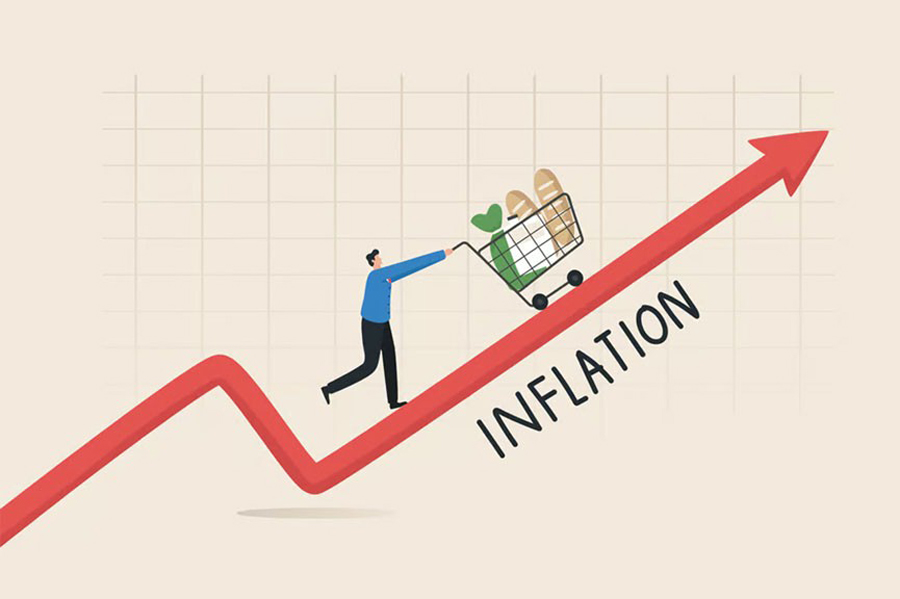
Published :
Updated :

The Bangladesh Bureau of Statistics (BBS) reported on Tuesday that the nation's inflation rate reached 9.81 per cent in March, up from 9.67 per cent in February.
The latest BBS figures reveal increases in both food and non-food inflation for the month. Food inflation escalated to 9.87 per cent, while non-food inflation increased to 9.64 per cent. In comparison, February's figures were 9.44 per cent for food and 9.33 per cent for non-food inflation, respectively, reports UNB.
Urban areas experienced a higher inflationary impact than rural regions, with urban inflation hitting 9.94 per cent compared to 9.68 per cent in rural areas. Urban food inflation reached 9.98 per cent, and non-food inflation was 9.71 per cent, whereas rural figures stood at 9.86 per cent for food and 9.41 per cent for non-food inflation in March.
Dr Ahsan H Mansur, a former senior economist at the IMF, highlighted that the country has been grappling with high inflation for over 18 months, heavily impacting those with limited incomes.
In response, the Bangladesh Bank has implemented several strategies, including an increase in the policy interest rate.
Consequently, the bank loan interest rate has soared to over 13.55 per cent. However, Dr Mansur noted that these measures have yet to show significant economic impact due to delays and bureaucratic hurdles.
Economists point to an unregulated market system and rising product prices as the primary culprits behind the persistent high inflation rate.


 For all latest news, follow The Financial Express Google News channel.
For all latest news, follow The Financial Express Google News channel.